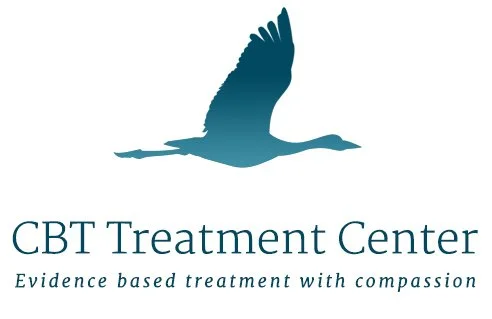
Tourette Syndrome Treatment
Are You Looking For Effective Treatment To Control Your Tics?
Do you or your child suffer from Tourette Syndrome? Have you grown exhausted by the way tics interfere with everyday life? Without being able to predict when or why tics will happen, do you live with the uneasy anticipation that you might tic at the most inopportune moment? Are you ready to find out more about the treatment available for Tourette Syndrome and learn how to get your tics under control?
Perhaps you’re frustrated by how tics can seemingly come out of nowhere. They may settle down for days or weeks at a time only to rear up when you least expect it. Because tics are out of your control, you may be bracing yourself for the potential embarrassment they can cause—especially with a verbal tic that includes inappropriate words or phrases.
You May Become Isolated Or Feel Misunderstood
If your tic surfaces when you’re in public, such as in the classroom, during a work presentation, or meeting someone for the first time, you may become self-conscious. Because not everyone is familiar with Tourette Syndrome, you might worry about what others think of you or try your hardest to make the tic appear as natural as possible. For example, you might try to swipe away your bangs with your hand at the exact moment that you tic to conceal when it’s happening.
Sadly, living with tics has the potential to impair every social situation you encounter. If you could just make the ticcing subside and get back to what matters most to you, you could relax and find more enjoyment in life.
The good news is treatment is available for the tics associated with Tourette Syndrome and other disorders. In therapy for tics, you can learn how to manage them and feel more comfortable.

The Cause Of Tourette Syndrome Remains Mysterious
Tourette Syndrome (TS) affects approximately one out of every 160 children between the ages of 5-17. Although TS is mostly common in children, it doesn’t always resolve by adulthood.[1] The motor tics associated with TS include physical gestures such as blinking, shrugging shoulders, and scrunching of the face. However, TS can also present as verbal or vocal tics. Mysteriously, the urge to tic often intensifies in public situations.
Although there has been speculation that there are underlying causes for TS, including the theory that some people tend to tic after periods of high anxiety, current research has been inconclusive on the origin of Tourettes. However, research has shown that TS can co-occur with Obsessive-Compulsive Disorder (OCD) and Attention-Deficit Hyperactivity Disorder (ADHD).[2]
Tics Can Develop For Various Reasons
In some instances, the sudden onset of tics in children has been linked to Pediatric Autoimmune Neuropsychiatric Disorders associated with streptococcal infections (PANDAs).[3] In another instance, teenage girls who were exposed to social media experienced a sudden rise in vocal tics.
This phenomenon was traced back to a popular TikTok content creator who had shared their vocal tics with their followers.[4] Due to an increase in social media consumption and the ongoing stress and anxiety caused by the Covid-19 shutdown, researchers concluded that these adolescents were more susceptible to tic disorders than they would have been under normal circumstances.[5]
Regardless of the underlying causes, living with a tic disorder can be disruptive and challenging. We fear the stigma of being “different” and the potential embarrassment that Tourette Syndrome can cause. And if your child exhibits subtler gestures, like a shrug or throat clearing, you may be unsure whether it’s a tic and treatment is necessary.
Cognitive Behavioral Intervention for Tics (CBIT) is a therapy that can help you or your child manage the tics brought about by Tourette Syndrome.[6] With a commitment to therapy, you can get back to leading your life confidently without tics being a factor.
Proper Treatment For Tourette Syndrome Can Help You Manage Your Tics
When you live with a tic disorder, it can feel like no one understands. Fortunately, treatment for Tourettes offers a safe and comfortable environment to learn how to manage the urge to tic in the presence of a trained therapist who understands what’s happening.
In therapy, you will learn more about Tourette Syndrome. If you or your child are constantly worried about ticcing in the presence of others, you can rest assured that our sessions together will be a judgment-free zone. Providing you with the freedom to talk about whatever challenges you are facing allows you to feel heard and validated.
What To Expect In Sessions
In the first few appointments, we will ascertain the nature of the tics as well as the impact they have on you. We may look at any environmental factors that could be adding to your anxiety and thereby contributing to the tics. Once we have determined what the tics are, we can then focus on treatment to manage the tics using the specialized techniques found in CBIT. Learning and practicing the tools CBIT offers will be your baseline for managing tics now and into the future.
If treatment is for your child, our first session will consist of a 60-minute interview with parents to identify what the tics are, understand how they negatively affect your child, and get an overview of their overall functioning. Thereafter, you will attend some sessions with your child while other sessions will be conducted individually. Because your child will need you to help them practice what they work on in sessions at home, we will ensure that parents remain up to speed.
About CBIT: Comprehensive Behavioral Intervention for Tics
Cognitive Behavioral Intervention for Tics (CBIT) is a comprehensive and systematic non-drug treatment that raises your awareness about your behavior and then helps you modify it. [1] CBIT is a short-term focused treatment created to help you manage and control tics. The interventions we develop in treatment will be carefully tailored to your specific symptoms related to Tourette Syndrome.
CBIT focuses on:
Raising awareness of what your tics are as well as when the urge to tic usually happens
Helping you select and engage in a different behavior rather than the tic; by creating a competing response, you can successfully diminish or possibly eradicate the tic
Identifying circumstances that exacerbate the urge to tic and collaboratively developing workarounds
Teaching you new coping skills for anxiety and stress.
Once treatment is over, you or your child will be equipped with specific methods for dealing with tics. We will also work on an “elevator speech” so you feel confident explaining your tics to anyone you may meet. With targeted treatment for tics, there is so much hope for change.
But You May Wonder Whether Tourette Syndrome Treatment Is Right For You…
Won’t Tourette Syndrome therapy be expensive and time-consuming?
Although choosing to seek therapy for Tourettes is a financial and time commitment, so is continuing to live with tics. It’s hard to put a dollar value on your well-being. And when tics are at their worst, they can drain you of time and energy as well as prevent you from engaging in the activities and social events you enjoy. Receiving treatment for Tourette Syndrome or other tic disorders is a long-term investment in your mental health and future.
I’m afraid that Tourette Syndrome treatment won’t work for me.
The treatment protocol for Cognitive Behavioral Intervention for Tics (CBIT) is designed to help you or your child find effective strategies to manage your tics. Although no medical or therapeutic treatment is 100 percent effective, CBIT has shown promising results. “A 2010 study found that children and adolescents who completed a 10-week course of CBIT showed a decrease in tic severity that was only slightly less than that associated with antipsychotics.”
I’m embarrassed that I might tic in front of the therapist during treatment for Tourettes Syndrome.
As therapists who specialize in tic-related disorders, we understand that you may hate the idea of ticcing in front of others. But rest assured that we have seen and heard it all. Because we work with children, adults, and families with a host of different challenges, nothing surprises us. Therapy is a safe space where you can let your hair down and focus on learning how to control your tics without the worry of being judged interfering with making progress.

Tics Don’t Have To Define Who You Are
With the right treatment, tics can be reduced. To schedule a free consultation to learn more about Tourette Syndrome Treatment, please contact us.
https://tourette.org/about-tourette/overview/
https://tourette.org/about-tourette/overview/what-is-tourette/#1461071628539-4f1f68e0-cd8d)
https://www.medicalnewstoday.com/articles/pandas-syndrome#definition
https://health.clevelandclinic.org/tiktok-causing-tics-in-teen-girls/
https://pubmed.ncbi.nlm.nih.gov/33677431/
https://tourette.org/research-medical/cbit-overview/
https://tourette.org/research-medical/cbit-for-patients/
https://tourette.org/research-medical/cbit-for-patients/


